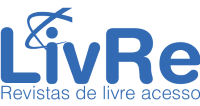PREDATORY LAWYER AND THE “INDUSTRY” OF MORAL DAMAGE IN BANKING DEMANDS
Keywords:
Predatory law; Bad faith; Financial institutions, moral damageAbstract
This paper addresses the concept of moral damages in Brazil, analyzing its evolution throughout the 20th century, with emphasis on its recognition by the Federal Constitution of 1988. In addition to discussing compensation for injuries to dignity and emotional integrity, the study criticizes the “moral damages industry”, where unfounded lawsuits seek unjust enrichment, especially against banking institutions. It also explores predatory law, where lawyers take advantage of loopholes in the judicial system to file multiple lawsuits without solid grounds. This article aims to analyze the high number of compensation claims linked to predatory practices in banking lawsuits in contractual relations in the consumer sphere. To this end, through a bibliographic analysis of journals, scientific articles and legal regulations, we will discuss how these phenomena reflect abusive and opportunistic practices that aim to obtain financial advantages through lawsuits, often unfounded or exaggerated, that exploit legal loopholes and the subjectivity of judicial decisions. The research suggests strategies to combat these abusive practices, such as the use of artificial intelligence and monitoring panels to identify predatory behavior, in addition to reinforcing the need for sanctions and greater oversight by the OAB. The study emphasizes the importance of professional ethics and rigor in the analysis of cases, aiming to preserve the integrity of the Justice system and avoid the trivialization of moral damage. Based on this, we will raise questions about professional ethics, the efficiency of the judicial system and the impacts of these actions. Identifying the causes and consequences, as well as proposals that aim at reforms to mitigate these effects.
Downloads
Published
How to Cite
Issue
Section
License
Copyright (c) 2024 Revista de Direito da ADVOCEF

This work is licensed under a Creative Commons Attribution-NonCommercial-ShareAlike 4.0 International License.







